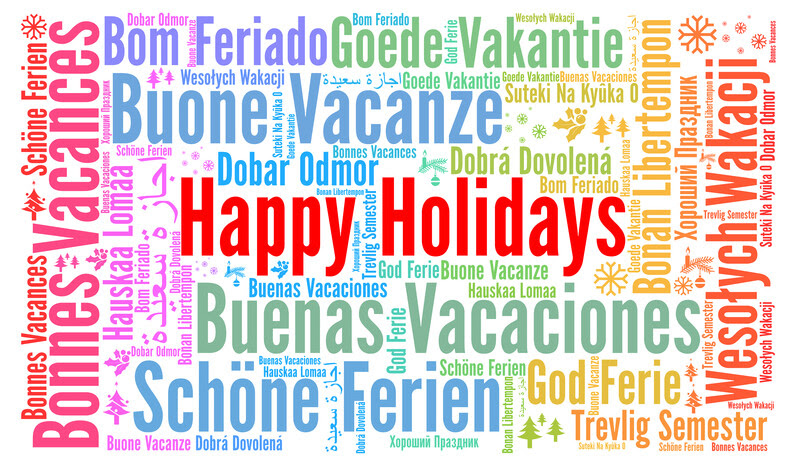As we approach the end of 2022 and the upcoming holiday season, allow yourself time and space to reflect upon what the holidays mean to you and your family.
What traditions do you plan to continue? What traditions need to be retired?
In the United States, the focus is often on Christmas and the associated Christian traditions, to the exclusion of other holidays such as Hannukah, Winter Solstice, and Kwanzaa. If you have friends who celebrate Hannukah, consider learning about the important traditions including lighting the menorah, playing dreidel games and eating latkes. For friends who are Wiccan, learn about the importance of the Winter Solstice and the themes of rebirth and quiet introspection. Discover the origins of Kwanzaa and the seven principles which serve to honor African heritage. Spend time learning about the history and customs of holiday celebrations which are unfamiliar to you as a way to increase your cultural awareness. Embracing and respecting differences is an important part of making our world a more diverse and equitable place.
During this celebratory time of year, remember that our neurodiverse friends and family may struggle to fully participate in celebrations. Beaming Health organization provided nine tips for making your holiday celebration more welcoming for neurodiverse and autistic attendees:
- Create a designated quiet space
- Communicate your expectations and plans
- Have “safe” foods available
- Dress code: comfort first
- Don’t force physical contact
- Keep it low key
- Allow flexibility in arrivals, departures, and duration of gatherings
- Make the gathering a judgment-free zone
- Break with tradition or start new ones
Holiday celebrations are often loud, boisterous gatherings which may create uncomfortable moments for neurodiverse people. Expectations about physical touch (hugging), social interactions, and attendance at parties are opportunities for hosts to set boundaries and create welcoming environments. As a host, create an environment where asking for consent to touch, including hugs, is normalized. Allow guest to lead the exchange. While we are living in a world where COVID is endemic, normalize fist bumps as alternative greetings.
Another way to be considerate of diversity is to understand that routines and schedules are an integral part of the lives of many neurodiverse people, and holiday parties can mean a disruption to these much-needed routines. As a host, consider what you can do to minimize disruptions by asking guests and/or parents about their schedules. Consider breaking up events into smaller time chunks to allow people to participate at their own comfort level. When issuing invitations, do so in a manner which allows people to decline without guilt.
Finally, understand that everyone’s tolerance for social interactions is different. This holiday season might be the first time some people have attended parties since the beginning of COVID, recognize that they might need time to acclimate to crowds, loud noises, and being in close contact with others. Allow space for one-on-one as well as group interactions. Place food in different rooms to allow people to mingle and eat at their leisure. Creating an inclusive and welcoming party will take additional time and effort on the part of the host, while showcasing a level of care and awareness often not afforded to neurodiverse friends and family.

